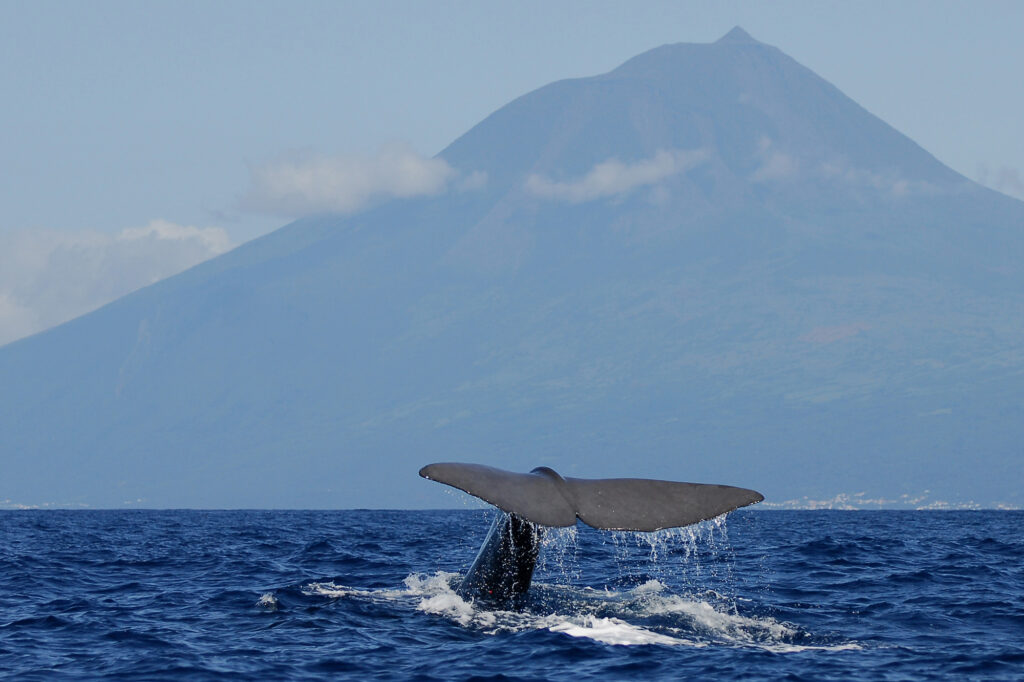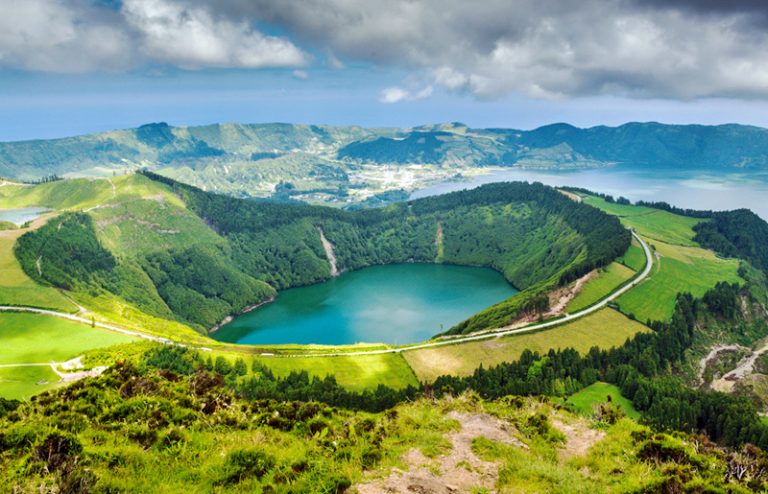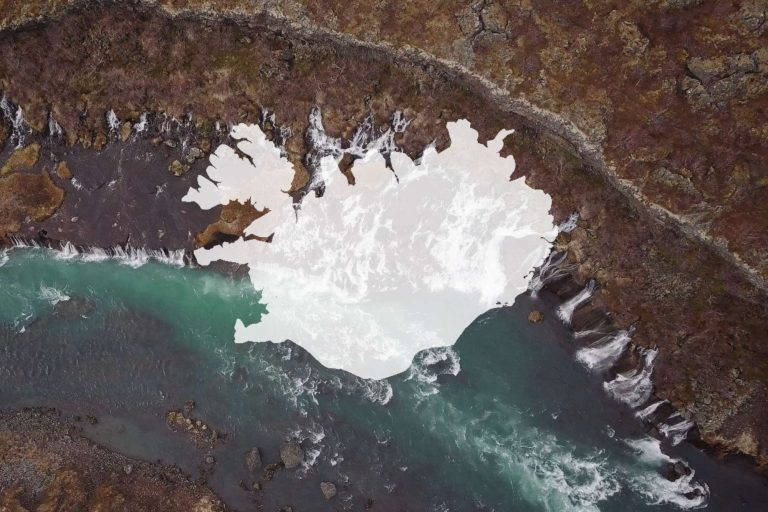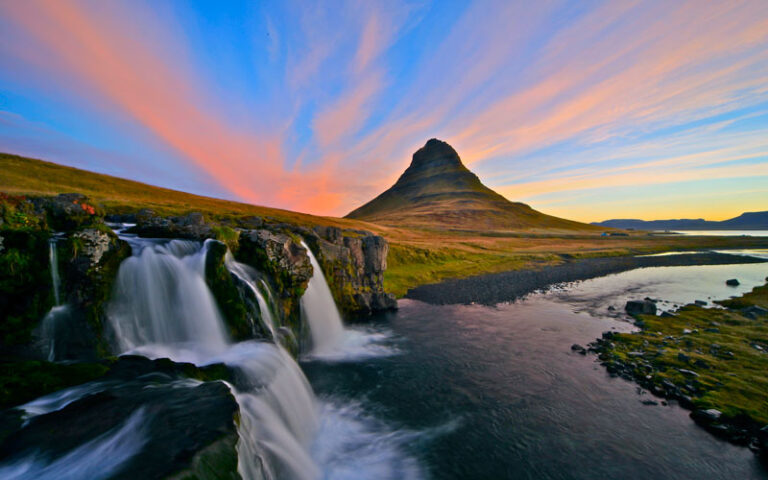#5 Energy in the Azores
950 miles off the coast of Portugal, the nine island archipelago of the Azores provide a fascinating destination for any school trip. What makes them a particularly fascinating destination for studying sustainability is the unique way the islands use their location to their advantage. The islands were originally formed by volcanoes, and now the lakes that fill ancient craters, the geothermal power beneath the ground and the rough winds of the Atlantic all provide the Azores with opportunities for renewable energy.
Historically Azorean people made a large proportion of their income from whale hunting. During this trip, students will learn how this has changed. The Azores now has over 60 marine protected areas and many tourists flock to the islands for the whale watching available just off the coast.
A school trip the Azores promises students a chance to get back to nature, engage with local culture and see raw geography up close and personal.
What will you study:
- Geothermal Energy
- Hydroelectric Energy
- Whales
- Managing Ecosystems
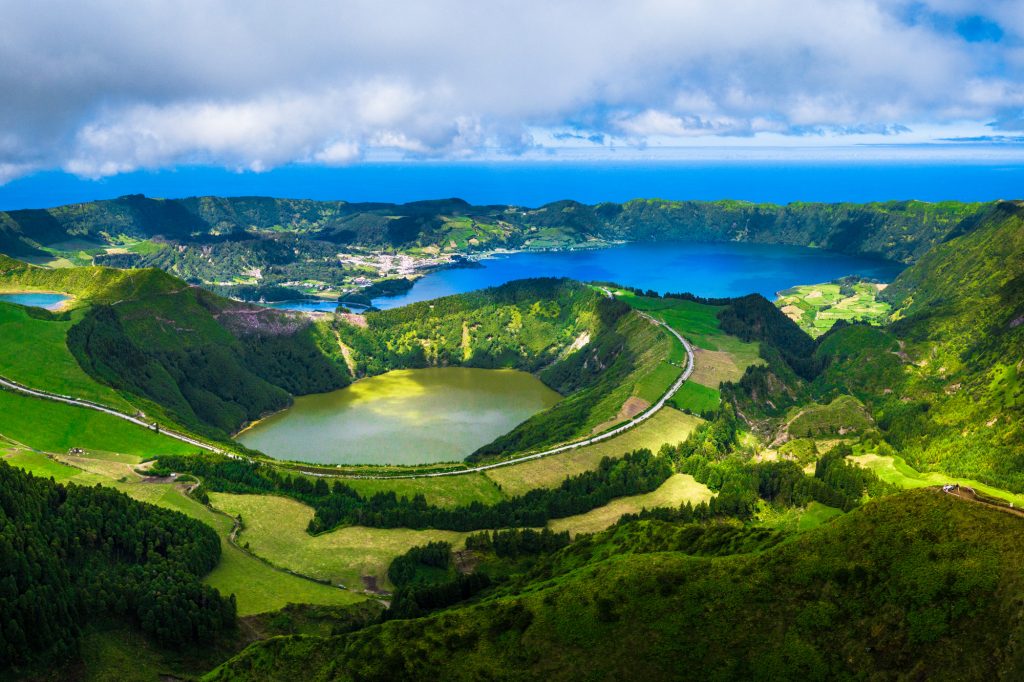
Azores sustainability by numbers
- Distance from London: 1,551 miles
- Cost to carbon offset return flights with World Land Trust: £15.22
- Environmental Performance Index (EPI) Rating: 71.91
- Over 60 marine protected areas (MPAs)
5 Days in Azores
Day 1 – Introducing the Azores
Fly to Ponta Delgada on the islands of Sao Miguel. This city is the largest in the Azores and acts as the regions’ capital.
There is no better introduction to the Azores than to embark on the walking trail around the city. You will get acquainted with the locals and see some classic Azorean architecture such as the historical gates of the city, Portas da Cidade.
Day 2 - Managing Ecosystems, geothermal energy and endemic species.
Outside of Ponta Delgada you will find rolling green hills bordered by a dark rocky coastline. Your first stop on Day 2 will take you to an agriculturally rich area, the town of Furnas. Here your group will plant a tree, this is an opportunity to encourage your students to interrogate which trees are being planted here and why?
Lake Furnas provides as excellent example of managing ecosystems as during the increased agricultural practices in the area, Azoreans struggled with eutrophication of the lake. Through organic farming practices they were able to bring the lake ‘back to life’.
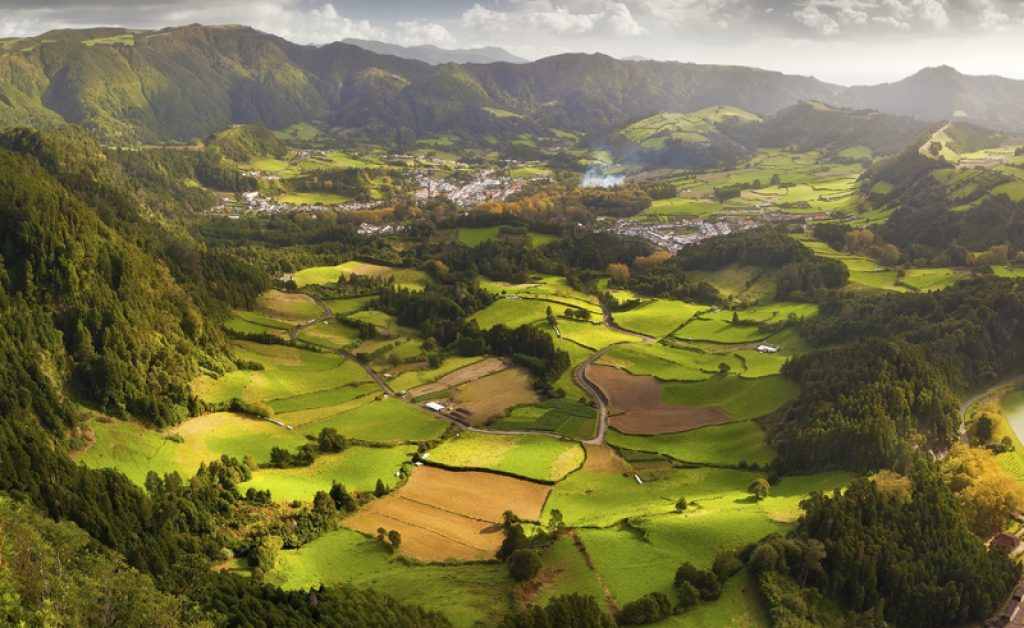
This area is also unique because of its geothermal properties. Students will see how local people make use of these bubbling fumaroles and even indulge in a Cozido lunch; a delicious meal cooked traditionally underground using geothermal heat.
After lunch, you’ll head to Terra Nostra Botanical gardens where botanical experts are researching and conserving endemic species. Your school trip group will also be able to enjoy the geothermally heated swimming baths at Terra Nostra.
As a final stop of the day your group will visit Europe’s only tea plantation.
Day 3 - Renewable Energy
The lush green islands make it easy to forget the fact that these islands were created by volcanic eruptions. The Lagoa do Fogo azure blue lake is in fact a collapsed crater of the Agua de Pau Massif stratovolcano.
Another side effect of the islands volcanic history is the production of geothermal energy which can be harnessed for electricity. On day 3 you will embark on a forest trek where they will view hydroelectric station viewings as well as wind farms trials and geothermal energy production. This is an excellent chance for students to evaluate which form of energy would be best for the Azores to invest in moving forward.
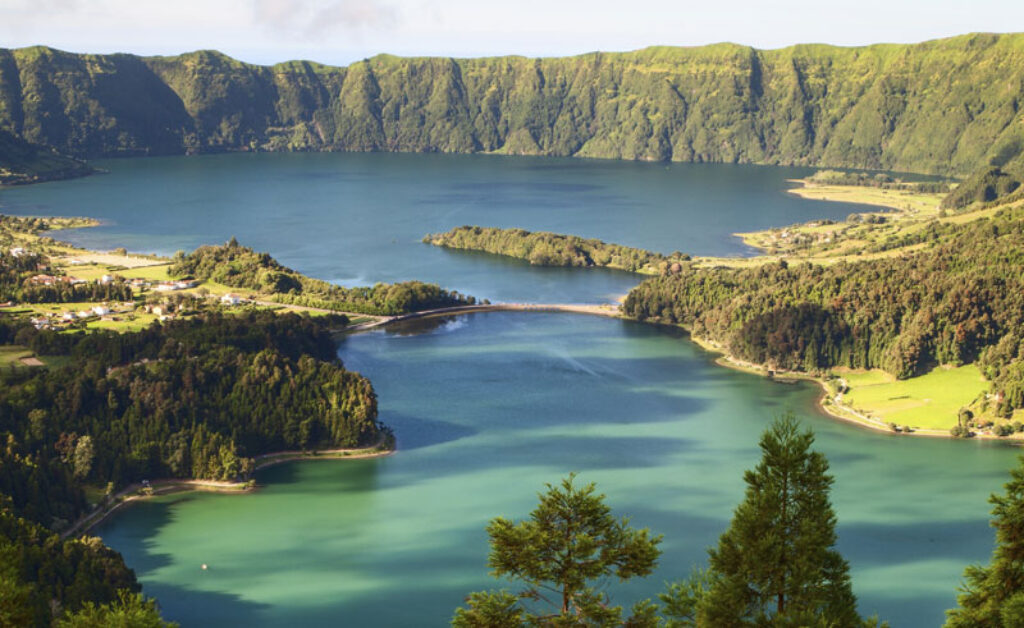
Day 4 - Whale watching
School trips are all about once in a lifetime experiences and in the Azores one of the most memorable activities is whale watching. The Azores are home to many types of whale including sperm whales humpback whales not to mention huge schools of dolphin. Until 1982, when it was banned, whaling was a major industry in the Azores.
Ask your students to evaluate what the impacts have been on the local community since the whaling ban.
Your last full day in the Azores will conclude with a trip to see some of the most iconic sights, Sete Cidades crater lakes, Ponta Do Escalvado view point, Mosteiros beach and the lava cave known as Gruta do Carvao.
Day 5 – Fly from Ponta Delgada
More…
